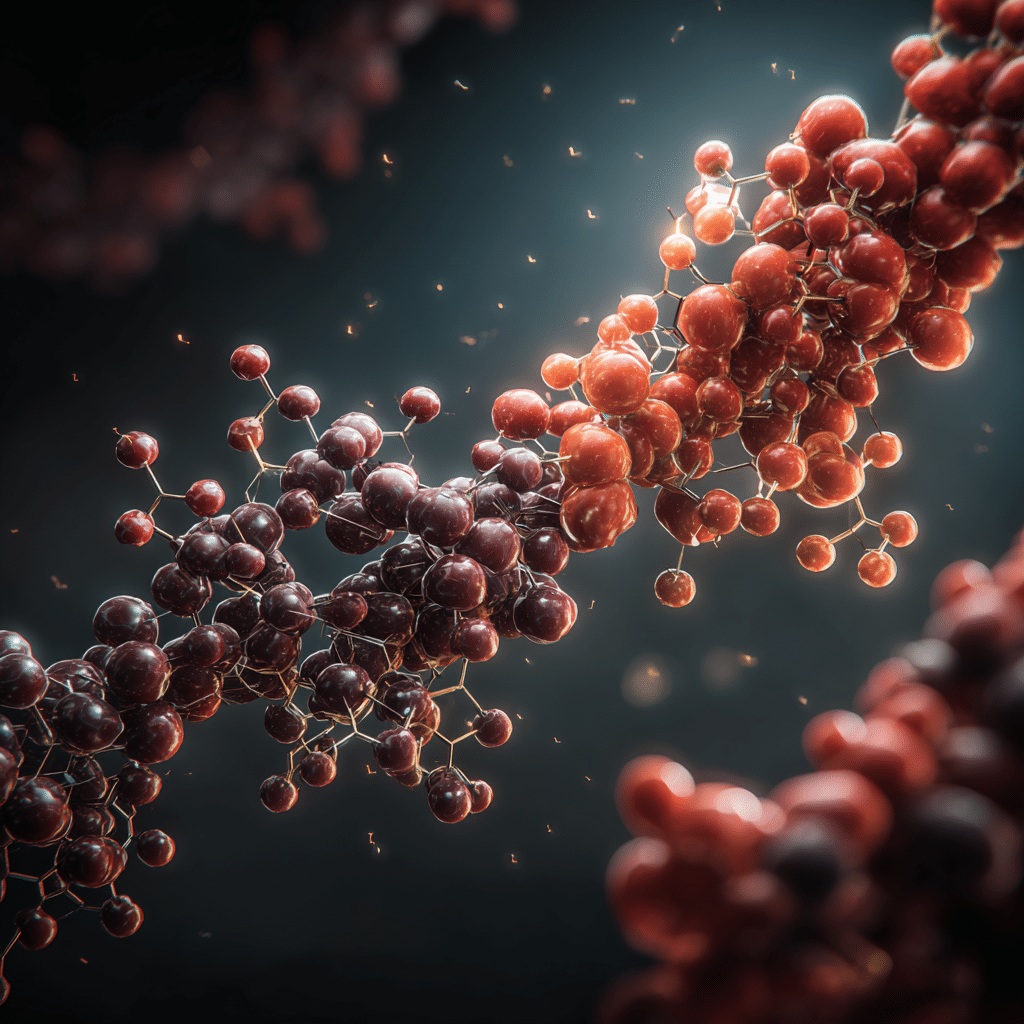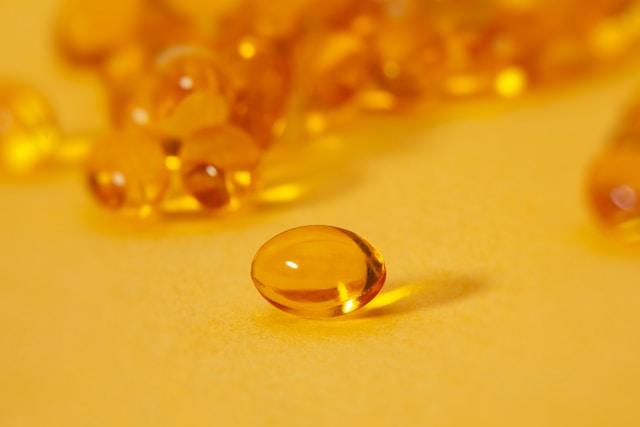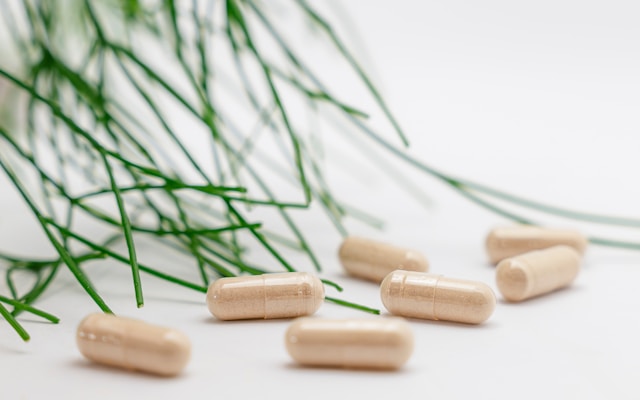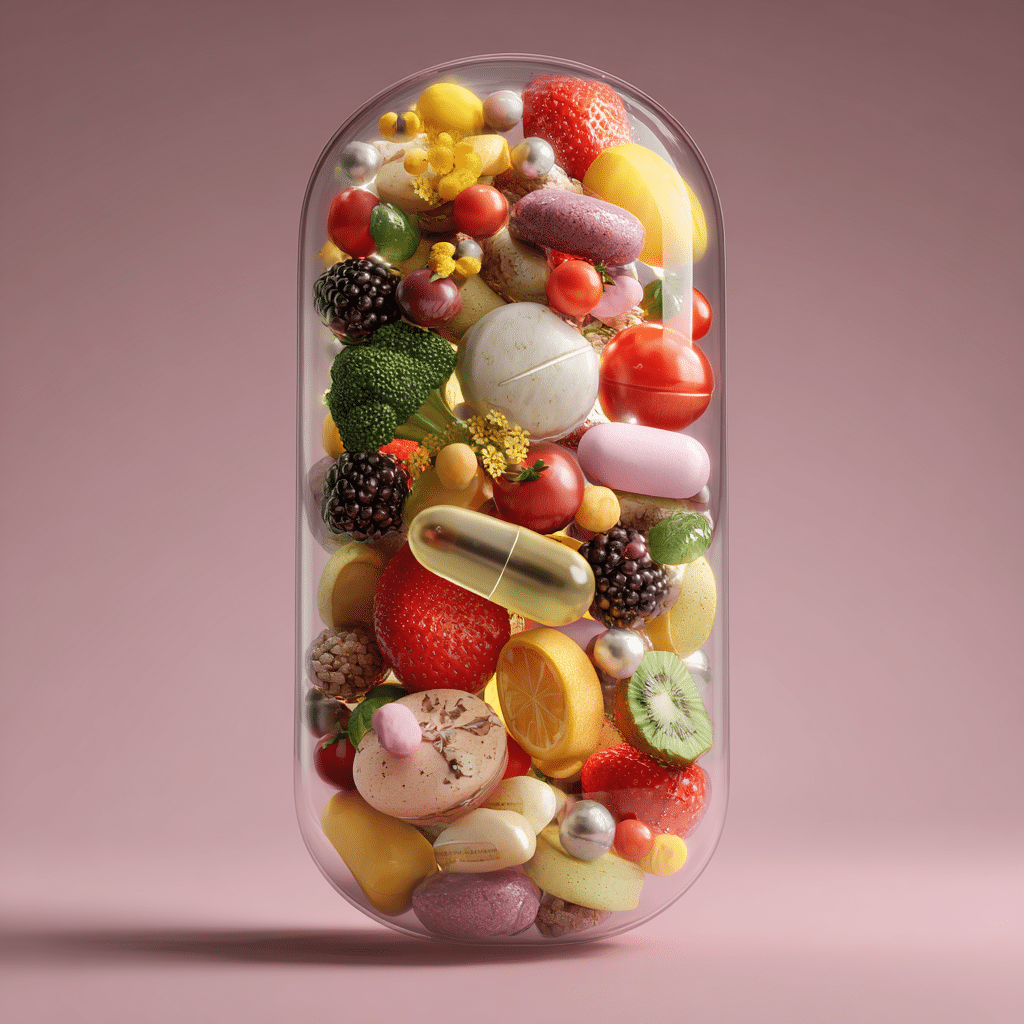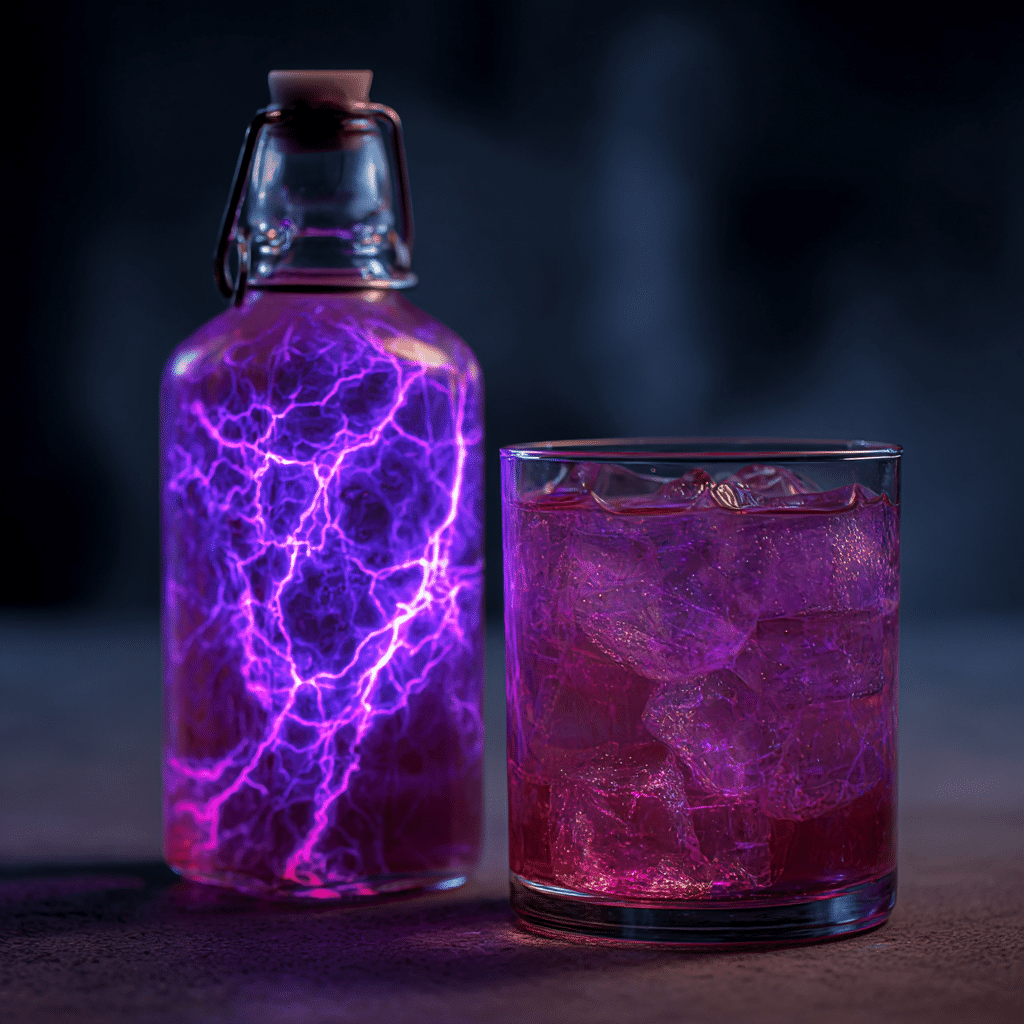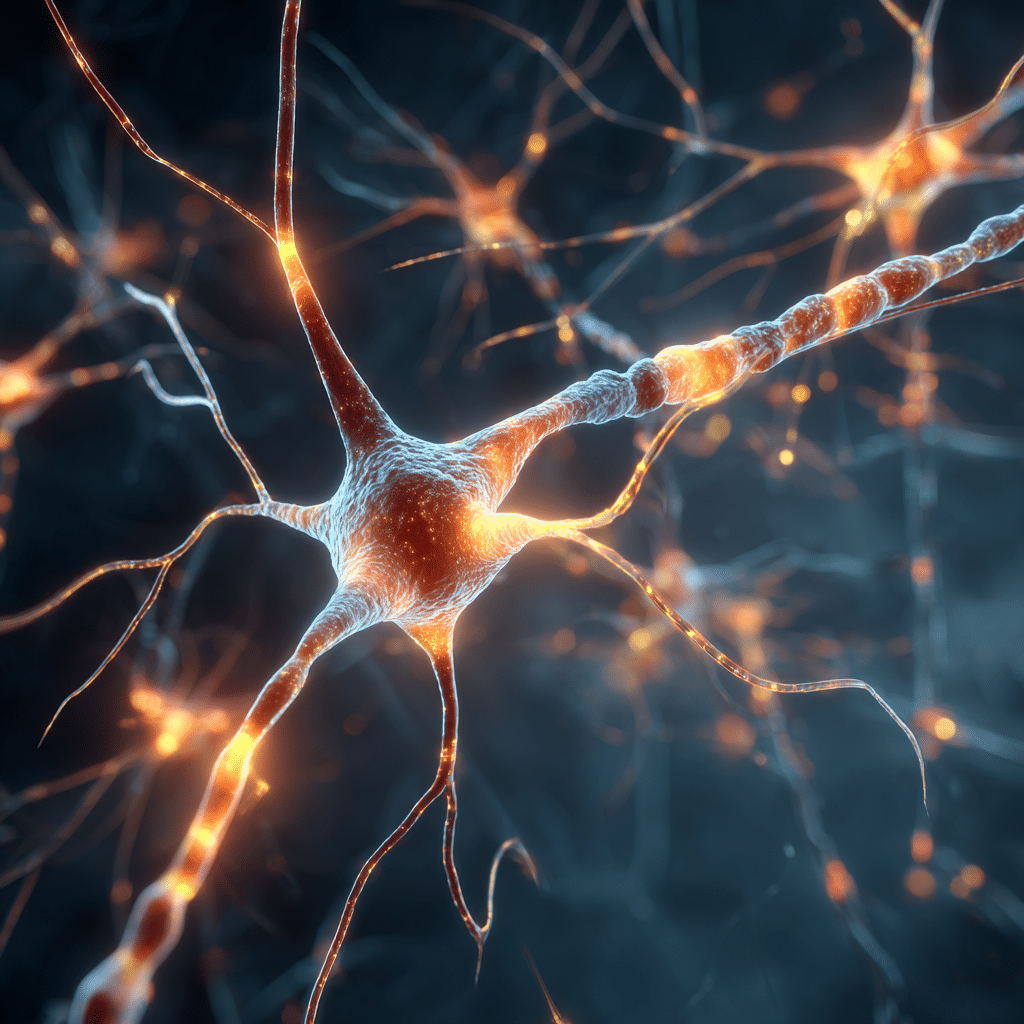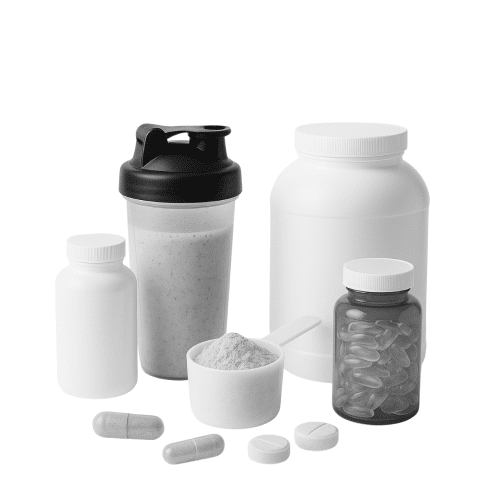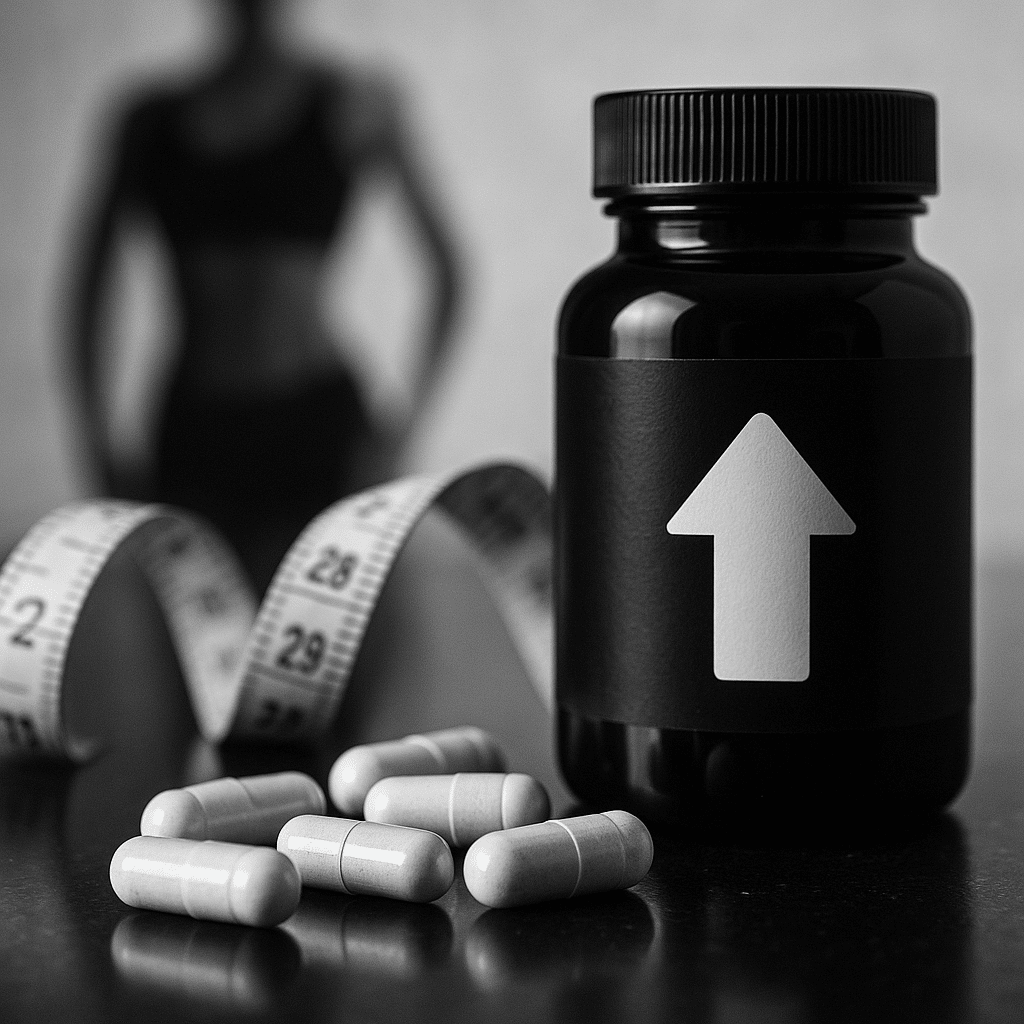Longevity and Performance Supplement List for 2026
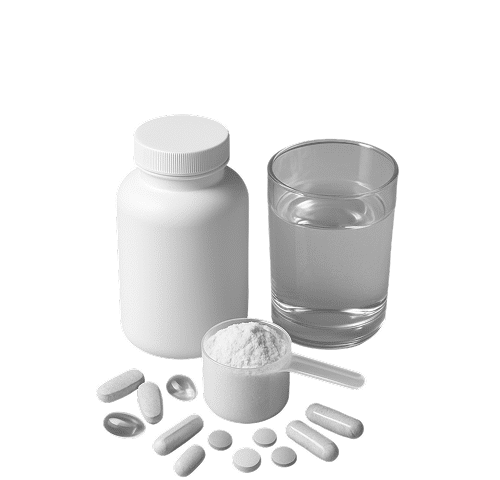
A Look at His Vitamins and Recovery Aids
- Last Updated: January 6, 2026
-
-
Supplement List Summary + Dosages (2025 Update)
Email me this supplement stackSupplement Benefits (concise) Dosage Guide Link to buy Multivitamin (methylated) Covers nutrient gaps 1 serving per label (2–4 caps) Get Multivitamin Resveratrol + NMN Longevity, circulation & energy metabolism Resveratrol: 100-500mg / day.
NMN: 250-500 mg/ dayGet NMN + Resveratrol TMG (Trimethyl-glycine) Supports methylation, balances homocysteine 750 – 3 000 mg per day Get TMG Methyl-folate (5-MTHF) Neurotransmission, sleep, mental clarity 400 µg – 5 mg daily (higher for MTHFR) Get 5-MTHF CoQ10 Cellular energy, heart health Not specified (taken with resveratrol) Get CoQ10
Omega-3 Fish Oil Anti-inflammatory, heart & hormone health 1 – 3 g EPA + DHA per day Omega -3 Vitamin D3 + K2 Immunity, hormone regulation, bone & heart health 5 000 IU D3 + 80 µg K2 daily Get Vit D3+K2 Vitamin B12 (methyl-cobalamin) Energy & brain health 1 000 – 5 000 µg daily or weekly Get Vit B12 Creatine Strength, endurance, ATP production 5 g daily pre-workout Get Creatine Plant-Based Protein Powder Bloating-free recovery & muscle repair 1 scoop ≈ 20 – 30 g protein post-workout Get Protein Powder Zinc Immune strength, testosterone support 20 – 30 mg daily (balance with copper) Get Zinc Probiotics Gut health & digestion Product-dependent; part of Gut Reset Get Probiotics Magnesium (Glycinate / L-Threonate) Sleep, relaxation, calmness 200 – 400 mg nightly Get Magnesium
Electrolytes Hydration & mineral balance 1 packet ≈ 1 000 mg Na / 200 mg K / 60 mg Mg each morning Get Electrolytes Potassium Hydration, nerve & muscle function From diet or electrolyte mix; no standalone dose Get Potassium
Essential Amino Acids (EAAs) Muscle growth, recovery, immunity 5 – 10 tabs / 1 scoop daily around training Get EAAs DHEA Hormone support & vitality 25 – 50 mg each morning with omega-3s Get DHEA Mineral-Rich Sea Salt Hydration, adrenal support Pinch (~¼ tsp) in morning water — Email me this supplement stack -
Resveratrol + NMN
Think of this duo (NMN and Resveratrol) as a pit-crew for tired cells. Resveratrol flips the switch on sirtuin genes linked to healthier blood vessels, while NMN restocks the NAD⁺ that powers mitochondrial engines. Together they’re associated with:
-
Better circulation (resveratrol’s endothelial boost).
-
Steadier energy (NAD⁺-driven ATP production).
-
Healthier metabolic blood markers (glucose, triglycerides).
Dose ranges most researchers use: Resveratrol 100–500 mg + NMN 250–500 mg once daily with breakfast. Pair them with a broad antioxidant stack (vitamin C, quercetin) for extra cellular armour.
If longevity and daily vitality are your goals, these Resveratrol and NMN supplements stand out for their quality and effectiveness:
- aSquared Nutrition Nicotinamide with Resveratrol: Each capsule combines 500 mg of niacinamide (vitamin B3) with 100 mg of resveratrol. This vegan-friendly, third-party tested formula supports NAD+ production, cellular repair, and steady daily energy.
- Force Factor NAD+ Longevity Complex: A complete 7-in-1 formula with NAD+, resveratrol, spermidine, and potent antioxidants. It’s designed to enhance brain function, protect against oxidative stress, and promote healthy aging at the cellular level.
-
-
TMG (Trimethylglycine)
TMG (Trimethylglycine) is a key compound in many longevity-focused supplement routines because of its central role in methylation, a critical process for cellular repair, detoxification, and cardiovascular support. By helping the body process homocysteine, TMG contributes to healthier aging and supports overall biochemical efficiency.
- Plays a role in methylation: TMG acts as a methyl donor, providing the building blocks needed for the body to process homocysteine into methionine. Elevated homocysteine has been linked to increased risk of cardiovascular and cognitive issues, making TMG valuable for those focused on long-term health maintenance.
- Supports cognitive and neurological function: Methylation directly influences neurotransmitter production, brain energy metabolism, and mood regulation. Supplementing with TMG can help support mental clarity, sustained focus, and a more balanced nervous system, especially when combined with B vitamins.
- May benefit cardiovascular health: By helping reduce homocysteine levels, TMG contributes to the maintenance of healthy blood vessels and optimal circulation. This can be particularly beneficial for individuals aiming to prevent age-related decline in heart function and arterial flexibility.
- Available in various dosages: TMG supplements are typically available in daily doses ranging from 750 mg to 3,000 mg. The optimal dose can vary depending on dietary intake, genetics, and overall methylation demand, which may be influenced by factors like stress or high physical output.
- Often paired with other methylation nutrients: TMG works synergistically with methylated folate (5-MTHF), vitamin B6, and methylcobalamin (B12). This combination helps ensure that the entire methylation cycle runs efficiently, supporting energy production, detox pathways, and genetic expression.
TMG is a practical addition to any longevity supplement plan aiming to support cardiovascular health, cognitive function, and optimal methylation. Its versatility and compatibility with other nutrients make it a useful tool for those looking to promote long-term cellular health and resilience.
If you’re looking to strengthen your methylation cycle and support overall wellness, these TMG supplements are excellent options:
- Nutricost TMG: Each capsule provides 750 mg of pure trimethylglycine. Non-GMO, gluten-free, and third-party tested, it’s designed to promote healthy homocysteine levels and cardiovascular support in a clean, reliable formula.
- Force Factor TMG Betaine: Delivering 1,000 mg per serving, this vegan-friendly supplement supports liver detoxification, energy production, and optimal methylation. A premium option for those wanting to combine performance and long-term health benefits.
- Double Wood Supplements TMG: Offering 1,000 mg per capsule, this third-party tested formula is crafted for athletes and health-conscious individuals alike. It supports endurance, cardiovascular health, and helps regulate homocysteine levels naturally.
-
Omega-3 Fish Oil
Omega-3 fish oil supplements are an essential part of a longevity and performance routine. While fatty fish like salmon and sardines provide omega-3s, many people don’t consume enough through diet alone.
That’s why its highly recommended to supplement with fish oil or algae oil to ensure the body gets adequate amounts of EPA and DHA, the key omega-3 fatty acids. Additionally, pairing omega-3 fish oil with DHEA in the morning supports hormone balance and reduce inflammation.
- Supports heart, brain, and joint health: Omega-3s play a key role in cardiovascular function, cognitive health, and reducing joint stiffness over time.
- Helps manage inflammation: Omega-3s has a natural way to reduce inflammation, which is linked to many chronic health concerns.
- Daily intake recommendation: A common dosage is 1–3 grams of EPA/DHA per day, depending on individual needs.
- High-quality sourcing matters: We advise using mercury-tested fish oil or a vegan algae-based omega-3 for purity and effectiveness.
For those aiming to protect their heart, brain, and joints, these Omega-3 supplements are some of the most reliable choices:
- Nutricost Omega-3 Fish Oil: Each serving provides 2,500 mg of omega-3s with 1,200 mg EPA and 850 mg DHA. Made from wild-caught fish, it’s non-GMO, gluten-free, and third-party tested for purity and potency.
- Nature’s Lab Triple Strength Omega-3 Fish Oil: With three times the strength of conventional fish oil, this formula delivers high levels of EPA and DHA per softgel. It’s designed to support circulation, cognitive health, and long-term cardiovascular function.
- Dr. Moritz Vegan Omega-3: A plant-based alternative made from algae oil, each serving offers 1,000 mg of omega-3s including 300 mg DHA and 150 mg EPA. Free from fish aftertaste, carrageenan, and artificial additives, it’s a clean choice for vegans or anyone avoiding fish oil.
-
Plant-Based Protein Powder
Protein is essential for muscle recovery, we recommend plant-based protein powders over whey. This avoids dairy-based options due to their potential to cause bloating and inflammation in some individuals. Instead, we recommends clean, soy-free, plant-based protein sources like pea or hemp protein.
These provide a high-quality amino acid profile without the digestive discomfort that can come with whey. Choosing a plant-based option aligns with his focus on maximizing protein intake while minimizing unwanted dietary irritants.
- Better digestion and gut health: Plant-based protein powders are easier to digest compared to whey, which can cause bloating or discomfort.
- No dairy or soy ingredients: We specifically recommend soy-free and vegan protein powders to avoid common allergens and inflammatory triggers.
- Optimized for muscle recovery: A single scoop provides 20–30 grams of protein, making it an effective option for refueling after workouts.
- Steady energy without insulin spikes: Unlike whey protein, plant-based options are less likely to cause sharp blood sugar fluctuations.
If building lean muscle while keeping digestion smooth is your goal, these plant-based protein powders are some of the best options available:
- Nutricost Organic Pea Protein: Certified USDA organic, this pea protein provides 20 grams per serving. It’s non-GMO, gluten-free, and made without soy, offering a clean, allergen-friendly source of protein for muscle recovery and daily nutrition.
- Force Factor Vegan Plant Protein: Each scoop delivers 20 grams of protein along with more than 20 fruits, vegetables, and superfoods. With added digestive enzymes and just 1 gram of sugar, it’s designed to support gut health while fueling workouts.
- Momentous Plant Protein: Trusted by pro athletes and NSF Certified for Sport, this protein offers 20 grams per serving with a full amino acid profile. Made without fillers or artificial ingredients, it mixes smoothly and supports high-performance recovery.
-
AG1
AG1 is a great addition for anyone looking to enhance the benefits of a well-rounded supplement routine. It combines essential vitamins, minerals, probiotics, and whole-food nutrients into one easy daily scoop, making it ideal for those who want to simplify their supplement intake without missing out on key nutrients.
-
Covers daily essentials: AG1 includes a wide range of nutrients typically found in multivitamins, probiotics, B-complexes, and greens powders.
-
Helps improve digestion and gut health: With built-in digestive support and good bacteria, it reduces the need for separate digestive aids or probiotic supplements.
-
Convenient morning ritual: Best taken on an empty stomach, mixed with 250–350 ml of cold water, to kick-start energy, focus, and absorption.
-
Complements existing supplements: Works well alongside supplements like magnesium, amino acids, and D3, especially for those looking to simplify their regimen.
-
Designed for long-term wellness: Its science-based blend supports immune function, performance, and healthy aging, all core goals of a performance-focused supplement plan.
Adding AG1 to your routine is an easy way to fill nutritional gaps and streamline your supplement stack while supporting digestion, energy, and overall daily performance.
-
-
Ashwagandha
Ashwagandha is a powerful adaptogen that plays a helpful role in reducing stress, balancing hormones, and improving overall resilience. We recommend adaptogens like ashwagandha as part of a broader approach to managing cortisol levels and supporting long-term health. While not always a headline item in many supplement stacks, this herb aligns well with his emphasis on restoring balance in the body.
-
Hormonal balance: Ashwagandha may help lower elevated cortisol, the body’s main stress hormone, which can support testosterone levels, thyroid function, and metabolic health.
-
Stress reduction: Known for its calming effects, ashwagandha is often used to ease feelings of tension and reduce the physical effects of chronic stress.
-
Enhanced energy and stamina: Regular supplementation has been shown to help reduce fatigue and improve physical performance, especially in people with demanding routines.
-
Cognitive function: Ashwagandha may help improve memory, focus, and processing speed by calming the nervous system and reducing mental fog.
-
Sleep quality: By promoting relaxation and reducing nighttime stress, ashwagandha can make it easier to fall asleep and stay asleep consistently.
If stress relief, sharper focus, and better sleep are on your list, these ashwagandha supplements are trusted for their potency and purity:
- Nutricost Ashwagandha: Delivers 600 mg per serving with 120 capsules per bottle. A straightforward, non-GMO, and gluten-free option that makes adding ashwagandha into your daily routine simple and consistent.
- Physician’s Choice Ashwagandha: Packs 1950 mg of organic root powder with black pepper for better absorption. Designed for stress support, stamina, and mood balance, it’s one of the strongest picks available.
- Organic India Ashwagandha: Certified organic, vegan, and non-GMO, this supplement is crafted for stress relief, energy, and sleep quality while supporting long-term resilience.
-
-
Vitamin D3 + K2
Vitamin D3 is one of the most important and well-studied nutrient in this list due to its widespread effects on immunity, hormones, and bone health. Many people are deficient, especially those who don’t get enough sunlight, leading to weakened immune function and potential long-term health issues. To maximize its benefits, always pairs Vitamin D3 with K2, ensuring proper calcium absorption and heart health.
- Boosts immunity and hormone function: D3 helps regulate the immune system, while also playing a role in testosterone and other hormone levels.
- Essential for bone and heart health: Without K2, calcium may not be directed to bones properly, increasing the risk of arterial calcification.
- Deficiency can mimic other illnesses: Prolonged low levels of D3 can cause joint pain, fatigue, and immune imbalances, sometimes mistaken for other conditions.
- Recommended dosage: We suggest taking 5,000 IU of D3 combined with 80 mcg of K2 per day, with adjustments based on individual blood levels.
- Best taken with fat for absorption: Since D3 is fat-soluble, it should be consumed with a meal containing healthy fats for better uptake.
For anyone wanting stronger bones, a healthier heart, and reliable immune support, these Vitamin D3 + K2 supplements are standout picks:
- Luma Nutrition D3 + K2: Each softgel combines 10,000 IU of D3 with vitamin K2 to support calcium absorption, bone density, and hormone balance. Made in the USA and third-party tested, it’s a high-strength option for daily wellness.
- Nature’s Lab Vitamin D3 Plus: With 5,000 IU of D3 and 100 mcg of K2 per capsule, this formula is designed to maintain bone, muscle, and cardiovascular health. Gluten-free and non-GMO, it’s a clean and reliable option for long-term use.
- aSquared Nutrition Vitamin D3 + K2: Featuring 180 cherry-flavored chewable tablets, this supplement makes daily dosing easy and enjoyable. Each serving supports calcium regulation, bone strength, and immune function with a potent max-strength formula.
-
Theanine
Theanine is a power supplement, particularly for a healthy sleep protocol. Known for its calming properties, theanine helps with focus, sleep quality, and reducing restlessness. It’s especially helpful for those managing ADHD or trouble falling asleep.
-
Promotes a calm, focused state: Theanine increases alpha brain wave activity, helping create a relaxed but alert mental state.
-
Improves sleep without sedation: While not a sedative, theanine encourages restful sleep by calming the nervous system.
-
Useful for ADHD management: We recommend it to improve focus and reduce overstimulation, especially in people with ADHD.
-
Standard dosage range: Most commonly taken in amounts between 100 and 400 mg daily, depending on individual response.
Theanine is a gentle yet effective option for improving sleep quality and mental focus, making it a valuable part of a longevity and performance routine.
If relaxation, sharper focus, and better sleep are what you’re after, these theanine supplements stand out for their quality and effectiveness:
- Nutricost L-Theanine: Each capsule provides 200 mg of double-strength theanine, with 240 servings per bottle. Non-GMO and gluten-free, it’s an affordable way to support relaxation and mental clarity every day.
- Force Factor L-Theanine: Formulated for stress relief and focus, this extra-strength option provides 200 mg per capsule. It’s stimulant-free, vegan, and designed to calm the mind without drowsiness, making it easy to stay sharp under pressure.
- Nature’s Lab L-Theanine: Offering 200 mg per serving, this supplement supports a balanced mood and relaxation. Manufactured in the USA with high-quality lab testing, it’s a simple, trustworthy choice for daily calm.
-
-
Zinc
Zinc plays a critical role in immune function, hormone regulation, and overall well-being. It plays an important role in fighting infections, healing wounds, and maintaining proper testosterone levels, especially in men. It can be considered an essential mineral for both short-term immunity and long-term health.
- Strengthens the immune system: Zinc helps white blood cells fight infections, making it particularly useful during cold and flu season.
- Important for hormonal balance: It contributes to testosterone production in men and plays a role in fertility and reproductive health for women.
- Aids in wound healing and enzyme function: Zinc is involved in hundreds of biological processes, including tissue repair and metabolism.
- Suggested dosage: 20–30 mg per day is a common recommendation, usually taken with food to prevent nausea.
- Balanced intake matters: Since high doses of zinc can deplete copper levels, we advise either balancing intake or using a multivitamin with both minerals.
Including zinc in your routine can help maintain a strong immune system, regulate hormones, and keep your body functioning efficiently. Ensuring proper intake can provide lasting health benefits.
When it comes to boosting immunity and staying resilient, these zinc supplements stand out for their quality and effectiveness:
- Nutricost Zinc Picolinate: Each capsule provides 50 mg of zinc in its highly absorbable picolinate form, with 240 servings per bottle. Non-GMO and gluten-free, it’s a simple way to maintain daily immune health.
- Nature’s Lab Zinc Picolinate: Made with pure ingredients and manufactured in a cGMP-certified facility, this supplement delivers 50 mg per capsule. Known for its bioavailability, it supports immune function and overall wellness.
- PurePremium Zinc: Featuring a high-potency blend of citrate and oxide, this formula provides 50 mg of zinc per serving. Vegan-friendly and lab-tested, it’s designed to enhance immune defense and energy support.
-
Multivitamin (Methylated)
Many health issues stem from nutrient deficiencies, which is why we recommend taking a high-quality multivitamin daily. Rather than relying on diet alone, this ensures your body gets a full spectrum of essential vitamins and minerals. We specifically recommend methylated multivitamins, which contain active forms of B vitamins like folate, B12, and B6, making them easier for the body to absorb and use.
- Provides a full range of essential nutrients: A well-formulated multivitamin covers vitamins A, B-complex, C, D, E, and K, along with key minerals like magnesium and selenium.
- Contains methylated B vitamins: Its better to avoid synthetic forms like folic acid and cyanocobalamin and opt for bioactive forms that the body can process more efficiently.
- Helps fill nutrient gaps: Even a well-balanced diet may lack certain vitamins and minerals, making daily supplementation a practical choice.
- Typical dosage: One serving per day, usually 2–4 capsules depending on the brand.
- Forms the foundation of his supplement routine: A high-quality multivitamin works alongside other supplements like magnesium and amino acids for overall health.
For all-in-one daily coverage and optimal absorption, these multivitamins deliver the essentials your body needs to thrive:
- Inessa Methylated Multivitamin: A once-daily formula packed with highly bioavailable nutrients, including CoQ10, B-complex vitamins, vitamin D3, and K2. Designed to fight fatigue and support energy, focus, and long-term wellness, it’s a simple way to get comprehensive daily coverage.
- Nature’s Lab Six Daily: Combining over 90 nutrients, antioxidants, herbs, and superfoods, this formula is crafted for cellular energy, immune support, and metabolic health. With bioavailable minerals like L-OptiZinc and added CoQ10, it provides advanced nutrition for overall vitality.
- PlantVital Whole Food Multivitamin: Made with 42 raw superfoods, this vegan-friendly option delivers natural vitamins, probiotics, and omega fats without artificial additives. Formulated for both men and women, it supports digestion, immunity, and balanced daily nutrition.
-
Magnesium (Glycinate & L-Threonate)
Magnesium plays a key role in relaxation, muscle recovery, and brain function, making it one of the most important minerals in this supplement list. Sleep, mood stability, and nervous system health play a vital role in any longevity protocol.
However, not all magnesium supplements are created equal – e.g. magnesium oxide, which has poor absorption, and instead suggest forms like magnesium glycinate and magnesium L-threonate for their superior bioavailability.
- Helps with relaxation and stress management: Magnesium is known for its calming effects, making it useful for those dealing with anxiety or high stress levels.
- Aids in sleep and muscle recovery: Taking magnesium in the evening helps relax muscles and promote restful sleep.
- Better absorption with the right forms: We recommend magnesium glycinate for relaxation and magnesium L-threonate for cognitive benefits, as it crosses the blood-brain barrier.
- Common dosage: Around 200–400 mg per day, often taken at night for better sleep.
Magnesium supports relaxation, recovery, and brain function while helping manage stress, sleep, and overall well-being. Preferred forms like glycinate and L-threonate are valued for their better absorption and effectiveness.
- Nutricost Magnesium L-Threonate: Each serving provides 2000 mg of magnesium L-threonate, designed for superior absorption. With 90 capsules per bottle, this gluten-free and vegetarian formula is tested for quality and supports cognitive health.
- Force Factor Ultimate Magtein: Delivers 2000 mg of magnesium L-threonate in convenient soft chews. Formulated to aid memory, focus, and relaxation, it’s flavored with mixed berry for an easy way to support brain function and stress relief.
- aSquared Nutrition Magnesium Glycinate: Offers 1000 mg of magnesium glycinate per serving, combined with vitamin D3 and B6 for enhanced absorption and overall wellness. This vegan-friendly formula also includes black pepper extract for boosted bioavailability.
- Nutricost Magnesium Glycinate: Provides 210 mg of magnesium glycinate per capsule with gentle absorption. Available in multiple capsule count options, it is third-party tested and manufactured in a GMP-compliant facility to ensure purity and safety.
-
Creatine
Creatine saturates intramuscular phosphocreatine stores, allowing faster ATP recycling during high‑intensity effort. Emerging evidence also points to neuroprotective and mood benefits.
Evidence snapshot
- 2022 umbrella review of 53 RCTs showed a ~7 % strength increase with daily creatine (3–5 g/day).
- 2023 double‑blind trial in sleep‑deprived pilots: 5 g improved working‑memory accuracy vs placebo.
- Vegetarians experience up to 15 % greater lean‑mass gains when supplementing.
How to dose it
Take 3–5 g creatine monohydrate daily; timing is flexible. Pairing with post‑exercise carbs may enhance muscle uptake. A 5‑day loading phase (20 g/day) is optional for quicker saturation.
Stack smart
Consume with ~300 ml fluid and adequate electrolytes to minimise GI upset. Creatine pairs well with electrolytes and beta‑alanine for high‑intensity sessions.
Safety notes
Long‑term studies (up to 10 g/day for five years) show no adverse kidney markers in healthy adults. Those with renal conditions should consult a clinician.
Creatine is one of the most researched and effective supplements for improving strength, endurance, and muscle recovery. These options deliver reliable quality and convenience for daily use:
- Wellah Creatine Monohydrate Capsules: Provides 3,000 mg of micronized creatine monohydrate per serving, split into four capsules for easy dosing. Its micronized form enhances mixability and absorption, making it a convenient option for consistent results.
- Nutricost Creatine Monohydrate Powder: Made with Creapure, this unflavored powder supplies 5 g per serving with 200 servings per container. It’s non-GMO, vegetarian, and third-party tested, offering purity and high quality in every scoop.
- PurePremium Creatine Monohydrate Gummies: Each gummy delivers 1 g of creatine monohydrate, allowing a full 5 g dose with five gummies. They’re tart raspberry flavored, vegan, and gluten-free, offering an enjoyable alternative without artificial colors or sweeteners.
-
DHEA
DHEA is a precursor steroid hormone that declines steadily after age 30. Adequate levels support sex‑hormone synthesis, bone density, mood, and immune resilience.
- Hormone support: DHEA plays a role in maintaining hormone levels, particularly as testosterone and estrogen production decreases with age.
- Morning pairing with omega-3s: We recommend optionally taking DHEA with omega-3 fish oil in the morning to promote hormone balance and overall health.
- Dosage considerations: While typical DHEA dosages for adults range between 25–50 mg per day, individual needs may vary.
- High-quality matters: We stress the importance of using a high-quality DHEA supplement, noting that since it’s a prohormone, it must be present for the body to make essential hormones efficiently.
- Part of a broader supplement routine: Alongside supplements like magnesium, resveratrol, and B12, DHEA fits into his approach to optimizing long-term health.
Maintaining healthy DHEA levels can help support hormone balance, energy, and resilience as we age. These supplements stand out for their quality and effectiveness:
- Nature’s Lab DHEA: Each capsule provides 50mg of micronized DHEA, designed for better absorption and utilization by the body. It supports balanced hormone levels, bone density, and immune function over the long term.
- aSquared Nutrition DHEA: This high-potency option delivers 100mg per capsule, promoting vitality, cognitive clarity, and hormone balance. Third-party testing ensures safety and quality, making it a dependable choice for daily use.
- ForestLeaf DHEA: Formulated with 100mg of micronized DHEA, this supplement is suitable for both men and women. It may help with mood stability, healthy aging, and energy support, all while using clean, natural ingredients.
-
Essential Amino Acids
EAAs supply the full spectrum of nine indispensable amino acids needed for muscle‑protein synthesis (MPS); BCAAs alone cannot drive MPS without the remaining building blocks.
Unlike branched-chain amino acids (BCAAs), which only provide a few amino acids, EAAs deliver all the building blocks the body needs for muscle repair, tissue growth, and immune function.
To maximize absorption, take a high-quality EAA supplement, which can be one of the most effective ways to energize the body without unnecessary calories.
- More effective than BCAAs: He considers essential amino acids supplements superior to isolated BCAAs for building lean muscle and improving recovery.
- Helps with muscle and tissue repair: EAAs provide the raw materials needed for protein synthesis, ensuring the body can efficiently rebuild muscle after workouts.
- Recommended intake: We suggest 5–10 tablets or one scoop of powder daily, often before or after workouts for maximum benefit.
- A staple in his supplement stack: EAAs are among the recommended supplements you should consistently take to maintain muscle mass, aid recovery, and keep your body performing at its best.
Essential amino acids play a vital role in muscle growth, repair, and overall recovery. Unlike BCAAs, they provide the complete spectrum your body needs to perform and recover effectively:
- Nutricost EAA Capsules: Each serving delivers 1,200 mg of essential amino acids, including BCAAs and additional key aminos like L-Lysine and L-Threonine. The formula is vegan, gluten-free, non-GMO, and third-party tested for purity.
- PrimaForce EAA Capsules: Offers the same full blend of EAAs in an easy-to-take capsule form, supporting protein synthesis, lean muscle development, and faster recovery. It’s manufactured in an FDA-registered, GMP-compliant facility to ensure high quality.
- Force Factor EAA Powder: Provides all nine essential amino acids in a flavorful cherry limeade powder. With no artificial colors or flavors, it’s crafted to support training, repair muscle tissue, and deliver a cleaner option for daily use.
-
Electrolytes
Why hydration ≠ water alone
Sodium, potassium, and magnesium regulate plasma volume, nerve conduction, and muscle contraction. Sweat, fasting, and low‑carb diets all raise demand.
Instead of sugary sports drinks, opt for high-quality electrolyte mixes, which contain key minerals such as sodium, potassium, and magnesium.
- Better muscle function and nerve signaling: Electrolytes play a key role in keeping muscles working properly and ensuring nerves send signals efficiently.
- Reduced risk of cramping and fatigue: When electrolyte levels drop, muscle cramps and sluggishness can set in, especially during physical activity.
- Suggested daily intake: One packet of an electrolyte mix is enough for daily consumption as it can provide around 1000 mg of sodium, 200 mg of potassium, and 60 mg of magnesium.
- No added sugars or fillers: We recommend electrolyte formulas that deliver essential minerals without artificial sweeteners or unnecessary ingredients.
- Alternative natural source: Instead of a supplement, you can sometimes dissolve mineral-rich sea salt in water to replenish electrolytes naturally.
Electrolytes play a vital role in hydration, helping the body maintain energy levels and muscle efficiency. This ensures your body stays balanced and performs optimally throughout the day by including them in your routine.
Staying hydrated isn’t just about drinking water. The right electrolyte supplements help restore balance, prevent fatigue, and keep muscles and nerves firing properly:
- Wellah Splish Splash Hydration Electrolyte Drink Mix: Packed with electrolytes and a superfruit complex, this grape-flavored powder delivers both hydration and antioxidants. It’s a flavorful option for workouts, long days, or anytime your body needs a quick boost.
- Nutricost Electrolyte Complex Powder: Featuring a blend of essential minerals along with added vitamins, this powder is ideal for daily hydration and energy support. With 120 servings and third-party testing, it’s a reliable choice for long-term use.
- Ketologic Keto Electrolyte Powder: Designed with the goBHB complex, this tropical punch formula not only replenishes electrolytes but also supports ketosis. It’s sugar-free, stevia-sweetened, and tailored for those who want hydration without compromising low-carb goals.
-
Methylated Folate
Why folate needs to be methylated
Unlike synthetic folic acid, 5‑MTHF is the bioactive form that bypasses the MTHFR enzymatic step. Up to 30 % of the population carry an MTHFR SNP that slows folate recycling.
- Better neurotransmitter regulation: Methylated folate helps the body process key brain chemicals, reducing mood swings and mental fog.
- Potential benefits for anxiety and sleep: Low folate levels have been linked to restless nights and racing thoughts, which you can address through supplementation.
- More effective than folic acid: The 5-MTHF form of folate is already in its active state, making it easier for the body to use.
- Recommended dosage range: Depending on individual needs, we suggest between 400 mcg and 5 mg per day, with higher doses often recommended for those with MTHFR mutations.
Folate plays a key role in brain function and overall well-being. This ensures the body gets the right nutrients for mood stability, better sleep, and improved mental clarity by choosing a high-quality methylated folate supplement instead of folic acid.
For better mood balance, improved energy, and long-term health, these methylated folate supplements stand out as excellent options:
- L Methyl Folate 15mg Plus Methyl B12 Cofactor: A high-strength formula that delivers 15mg of L-Methylfolate along with 1000 mcg of methyl B12, designed to boost energy levels, stabilize mood, and promote cardiovascular health. Its bioactive form ensures fast and efficient absorption.
- Pink Stork Methylated Folate: A women-owned brand that provides a clean L-5-MTHF supplement, ideal for supporting pregnancy and overall wellness. Made without synthetic fillers, it promotes proper folate metabolism and long-term health in a simple daily capsule.
- Designs for Health L-5-MTHF: Formulated with the highly stable Quatrefolic form of methylfolate, this supplement provides dependable support for methylation and homocysteine regulation. It also aids cognitive clarity and nervous system function, making it a reliable option for daily use.
-
Vitamin B12 (Methylcobalamin)
Methylcobalamin supports DNA synthesis, myelin maintenance, and one‑carbon metabolism. Unlike cyanocobalamin, it’s already in its co‑enzyme form, no hepatic conversion required.
- Essential for brain function and energy: B12 is involved in neurotransmitter activity, nerve health, and mental clarity, helping prevent cognitive decline and fatigue.
- Recommended for those with absorption issues: Vegetarians, vegans, and aging individuals often need supplementation since B12 is primarily found in animal-based foods.
- Optimal dosage range: Depending on individual needs, common doses range from 1,000 to 5,000 mcg daily or weekly, with some opting for B12 injections.
- Avoids synthetic forms: Cyanocobalamin can be harder on the liver, and instead we recommend the bioavailable methylcobalamin form.
To keep your mind sharp, energy steady, and body well-nourished, these Vitamin B12 supplements deliver powerful support:
- VitBoost B12 Complex: Provides 25,000 mcg of methylcobalamin per serving, combined with collagen, hyaluronic acid, and folate to support energy, metabolism, and immune function. It’s non-GMO, gluten-free, and crafted in the USA for purity and quality.
- Nutricost Vitamin B12: Offers 2,000 mcg of methylcobalamin in each capsule, with 240 servings per bottle. It’s vegetarian-friendly, gluten-free, non-GMO, and third-party tested to ensure consistency and safety.
- aSquared Nutrition Vitamin B12: Supplies 5,000 mcg of methylcobalamin per tablet, designed to boost energy, brain health, and cardiovascular support. It’s vegan, non-GMO, and produced in GMP-certified facilities for reliability.
-
Probiotics
Why the microbiome matters
A well‑balanced gut ecosystem is central to nutrient absorption, immune surveillance, and the gut‑brain axis that influences mood and cognition.
- Promotes a balanced gut microbiome: Probiotics help maintain a healthy ratio of beneficial bacteria, which can improve digestion and immune function.
- Aids in nutrient absorption: A well-functioning gut enhances the body’s ability to absorb essential vitamins and minerals.
- Linked to mental well-being: Probiotics can influence mood and cognitive health through the gut-brain connection.
- Often paired with digestive enzymes: You may use probiotics alongside other digestive aids to enhance overall gut function.
- A key part of long-term wellness: Gut health is essential for maintaining energy levels, supporting the immune system, and preventing digestive discomfort.
Probiotics complement a holistic approach to health, ensuring optimal digestion and nutrient absorption.
For better gut health, improved digestion, and long-term wellness, these probiotic supplements provide excellent support:
- Organic India Psyllium Husk Powder with Probiotics: Combines fiber, probiotics, and Ayurvedic herbs like Triphala to aid digestion, detoxification, and nutrient absorption. It’s organic, sustainably sourced, and versatile enough to mix into smoothies, water, or even baking recipes.
- Inessa Daily Biotic: Provides 10 billion CFU of Lactobacillus rhamnosus GG in a delayed-release capsule, ensuring probiotics survive stomach acid and reach the gut. It’s vegan, diet-friendly, and designed to strengthen gut balance, support immunity, and aid digestion.
- Nature’s Lab 14-Day Colon Cleanse: Features a combination of probiotics, fiber, and plant extracts like cascara sagrada, psyllium husk, and aloe vera to promote digestive health and regularity. It’s non-GMO, vegetarian, and formulated for a short-term gut reset and cleansing.
-
Coenzyme Q10 (CoQ10)
CoQ10 is an antioxidant that plays a critical role in energy production and cardiovascular function. Consider including this supplement in your lineup to help combat oxidative stress and promote cellular health.
- Essential for cellular energy: CoQ10 is involved in ATP production, which fuels cells and supports overall vitality.
- Contributes to heart health: Regular supplementation may aid circulation and support cardiovascular function.
- Acts as a powerful antioxidant: CoQ10 helps neutralize free radicals, reducing oxidative damage in the body.
- Often combined with other antioxidants: CoQ10 maybe be paired with resveratrol supplements to enhance its protective effects.
- Recommended for aging individuals: Natural levels of CoQ10 decline with age, making supplementation beneficial for maintaining long-term health.
CoQ10 is often recommended for energy, cardiovascular support, and antioxidant protection. If you’re looking to reduce oxidative stress while keeping your body fueled, these supplements are strong options to consider:
- Lunakai CoQ10 Gummies: A tasty, orange-flavored gummy that delivers 200 mg of CoQ10 per serving. It supports heart health, boosts cellular energy, and helps reduce oxidative stress, all while being vegan and made without artificial ingredients.
- Nature’s Lab Gold CoQ10 + Alpha Lipoic Acid + Acetyl L-Carnitine: This formula combines 100 mg of CoQ10 with additional antioxidants and amino acids. The synergy with alpha lipoic acid and acetyl L-carnitine makes it effective for heart health, energy production, and overall cognitive support.
- aSquared Nutrition CoQ10: A high-strength capsule that provides 400 mg of CoQ10 per serving, designed for maximum absorption. It’s ideal for those who want extra cardiovascular support, increased stamina, and protection against free radicals.
-
Potassium
Potassium is a key electrolyte that plays a major role in muscle contraction, nerve function, and fluid balance. This mineral should be prioritized alongside magnesium to maintain proper hydration and prevent deficiencies.
- Regulates muscle and nerve function: Potassium helps transmit nerve signals and ensures smooth muscle contractions.
- Prevents cramps and fatigue: Maintaining adequate levels can reduce the risk of muscle spasms, particularly during exercise.
- Works alongside magnesium: We emphasize the importance of balancing potassium with magnesium supplements for overall well-being.
- Supports cardiovascular health: Potassium helps regulate blood pressure and maintain heart rhythm.
- Common dietary sources: While potassium is found in foods like bananas, leafy greens, and avocados, supplementation can help meet daily needs.
We suggest including potassium in your routine to enhance physical performance and maintain electrolyte balance.
To keep muscles strong, energy levels steady, and hydration balanced, these potassium supplements are some of the best options available:
- Nature’s Lab Potassium Citrate: Each capsule delivers 250 mg of potassium citrate to support muscle contraction, nerve signaling, and heart health. With 120 vegetarian capsules in every bottle, it’s a convenient way to maintain proper electrolyte balance and overall vitality.
- Nutricost Potassium + Magnesium: Combining 99 mg of potassium citrate with 210 mg of magnesium citrate per serving, this formula covers two essential minerals in one. It’s non-GMO, gluten-free, and third-party tested, making it ideal for daily use to reduce cramps and boost recovery.
- Force Factor Potassium Citrate: Formulated to improve cardiovascular health, hydration, and performance, these 180 vegan capsules are crafted for athletes and active lifestyles. They’re designed to help regulate fluid balance, prevent fatigue, and speed up recovery after tough workouts.
-
Melatonin
Melatonin can help optimize sleep. If used responsibly, melatonin helps those who struggle to fall asleep and may benefit individuals working on sleep consistency – however use this carefully.
-
Aids in falling asleep faster: Melatonin helps signal the body that it’s time to wind down, particularly in low-light environments.
-
Regulates the body’s internal clock: It can be useful for people dealing with jet lag, shift work, or irregular sleep patterns.
-
Standard usage guidance: Most use between 0.5 mg to 5 mg taken 30–60 minutes before bedtime.
If falling asleep faster and waking up refreshed is your goal, these melatonin supplements provide simple and effective solutions:
- Lunakai Melatonin Gummies: A low-dose 1 mg gummy that’s ideal for both adults and kids. With a natural strawberry flavor, they make falling asleep easier without grogginess, while also being vegan, non-GMO, and gluten-free.
- AloeCure Melatonin + Collagen: Combines melatonin with collagen and organic aloe vera to promote deeper sleep while also supporting skin elasticity, joint strength, and overall recovery. A unique option for those who want beauty and rest benefits together.
- Force Factor Chewable Melatonin: Delivers a potent 5 mg dose in an easy-to-take cherry-flavored chewable tablet. Drug-free and non-habit-forming, it’s designed to help regulate circadian rhythm and encourage a natural, refreshing sleep cycle.
-
-
Disclaimer: Some links in this article may be affiliate links. If you choose to make a purchase through these links, we may earn a small commission at no additional cost to you. These commissions help support the creation of independent, research-driven content. Product selections and recommendations are made based on editorial judgment and publicly available information, not on partnerships or sponsorships.
-
-
References

